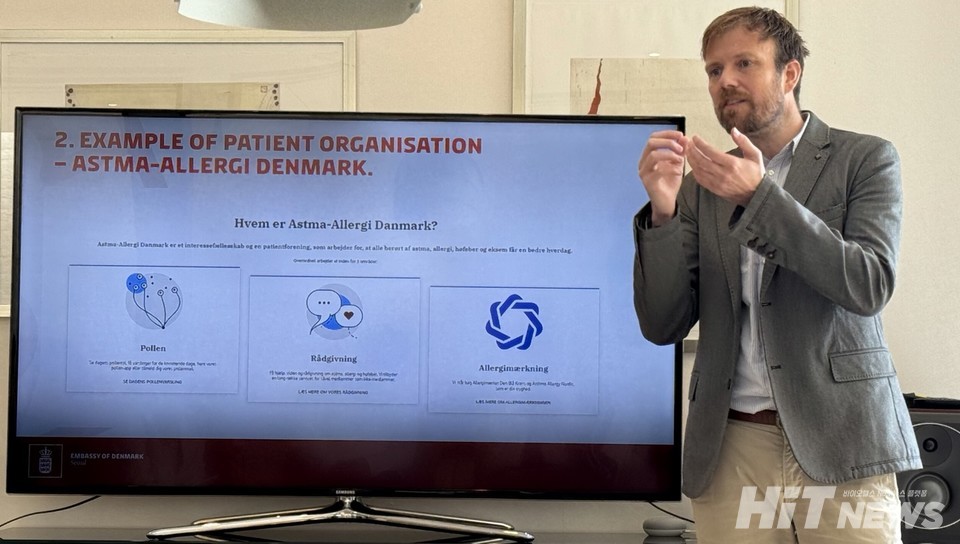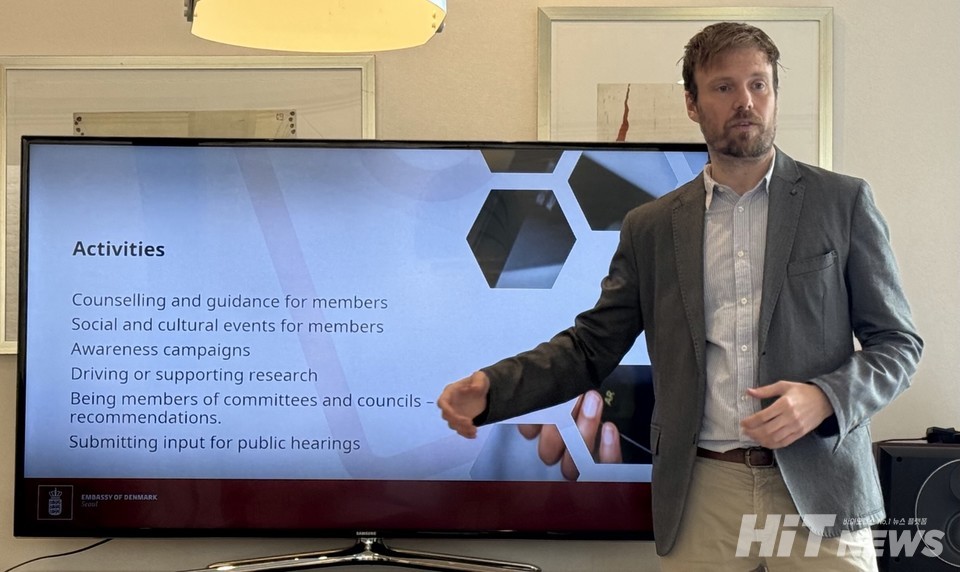Danish Embassy in Korea and SADA Collaborate to Enhance Treatment Policies for Severe Atopic Dermatitis

The importance of communication between the government and patients was emphasized as essential to ensuring appropriate treatments and advancing medical care. Denmark’s approach of prioritizing patient input in shaping treatment policies was highlighted, with the Danish Embassy in Korea pledging support to amplify South Korean patient advocacy group voices to the government.
On November 19th, the Danish Embassy in Korea and the Severe Atopic Dermatitis Alliance (SADA) hosted a roundtable discussion at the Danish Embassy residence. The discussion focused on Danish patient advocacy practices, their influence on healthcare policies, and the unmet needs of Korean atopic dermatitis patients.
During the meeting, SADA proposed revising reimbursement standards for atopic dermatitis treatments. While discussions by Korean health authorities about expanding reimbursement to include switching between JAK inhibitors and biologics show promise, reimbursement for intra-class switching has yet to be addressed due to insufficient clinical evidence.
Patient advocacy groups and industry experts raised concerns that excluding intra-class switching could push patients toward the most widely used medication within a class, potentially leading to a concentration effect. Additionally, intra-class switching among biologics was emphasized as crucial for certain patients, such as pregnant or breastfeeding individuals who cannot use JAK inhibitors.
An industry representative stated, "Severe atopic dermatitis requires tailored treatments for each patient. Reimbursement standards must improve to ensure no patient is left behind."

Mads Friborg, Health Counselor at the Danish Embassy in Korea, highlighted Denmark’s commitment to patient input in treatment policy-making. He attributed Denmark’s healthcare advancements to the government’s practice of fostering dialogue with patients when deciding treatment methods.
Friborg noted that one of Denmark's major patient advocacy organizations, Danish Patients, represents approximately 900,000 individuals—15% of the country's population. This group not only educates patients about diseases and raises public awareness but also contributes to policy proposals, such as reimbursement standards. Furthermore, they provide pharmaceutical companies with reference data on treatment efficacy.
"In Denmark, laws and regulations regarding treatments are created or revised based on input from patient advocacy groups, enabled by collaboration between the government, patient groups, and the pharmaceutical industry," explained Friborg.
He added, "Denmark's healthcare system has progressed through communication with patients rather than enforcing rigid treatments. I hope Korea's government and patients can work together, building a bridge for mutual support."

The Danish Embassy in Korea plans to propose collaboration with the Ministry of Health and Welfare next year, aiming to strengthen the influence of patient advocacy groups.
"Although plans are not yet finalized, we are considering initiatives such as organizing tours of Denmark for Korean patient groups, funded by Danish resources. These tours would provide networking opportunities and showcase the operational methods of Danish patient advocacy groups," Counselor Friborg shared.

